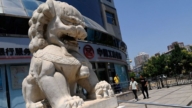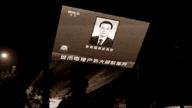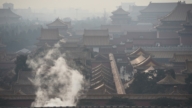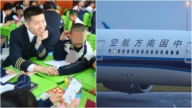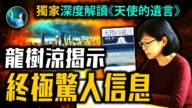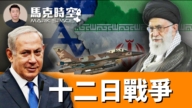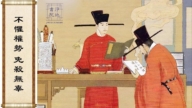【新唐人2012年1月3日讯】“清华大学”当代国际关系研究院院长阎学通,在12月30号出版的《环球时报》上撰文说,世界格局正向“两超多强”转变,就是说,中国缩小和美国的差距,成为另一个“超级大国”。但《环球网》的民意调查显示,近90%的网民不认同这个观点。经济专家预测,由于中国国内矛盾激化,今后中国在国际空间的作用将进一步缩小。
“中国是否已经成为一个超级大国?”对此,中国老百姓最有发言权。
《环球网》12月30号展开调查,截至1月月1号8点,87.6%投票的网友不认同这种说法,认为从人民生活水平、国民素质、工商业实力来讲,中国离超级大国都还有很大距离。
广州陈先生:“你看看这个国家,支撑国家的四个最主要的方面--工业、农业、军队、还有年青人,学生,都没有什么保障,何来大国之称?何来超级大国之称?”
广州陈先生分析说,目前中国的工业主要是外来产品加工,没有自己的核心技术,和代表性的品牌﹔农村萧条,农民由于收入低下,流入城市做农民工,农村土地大量被征收;而转业退伍军人由于95%以上失业,纷纷起来维权;甚至学生毕业后找工作也非常困难,毕业等于失业。
而北京市民周中认为,“超级大国”这个词有不同的定义。
北京市民周中:“这个内涵很丰富,如果说从经济上,或者是专制这方面,对于政权的控制上,那中国绝对属于超级大国。那么,如果要说从人权上,人民的生活水平上,包括一些人均GDP来说,那你比美国那没法儿比了。可能国际上排100多位了,这个都有统计数据。”
中国网民发文说,中国人均收入排名全世界第109位,在叙利亚后头;环境指数全球排名133;而中共政府清廉指数排名世界第71;中国的公务员占总人口比例全世界第一,是世界上政府经费最高的国家。美国公民可以免签进入159个国家,而中国只有38个。
中国社会经济问题专家程晓农:“‘两超多强’是阎学通提出来的,这是一个中国御用的学者。中国根本不能和美国相提并论,作为两个超级强国来比较。因为实际上中国已经不再崛起了,它只是一个韬光养晦,待在那儿,尽量的把注意力放在解决国内问题上。所以它在国际社会上谈不上是什么超强的国家。”
程晓农指出,实际上中共官方早在去年年底之前就悄悄地停止了“中国崛起”的宣传,因为中国经济在2011年大转折,从表面上的繁荣开始转向越来越大的困难,而网络言论,乌坎事件等也普遍反映出,中国民间对政府的不满达到了空前的高度。但中共的第五代班底并没有实际办法来解决这些问题。
程晓农认为,并不存在“两个超强”的问题。他说,美国作为一个强国,在世界上仍然有它很大的发挥作用的空间。而中国实际上是在缩小它在国际空间里的作用。
新唐人记者常春、尚燕、萧宇采访报导。
*********
Is China a Superpower? 90% Netizens Say No
A “Global Times” article has stated the world situation is
changing to “two superpowers, plus multiple strong powers.”
The author was Yan Xuetong, Head of Contemporary
International Relations Research Institute, Tsinghua University.
The article said China has shortened the gap between the US
and itself, and changed into another “Superpower”.
But in a “Global Times” survey, nearly 90% of netizens
disagreed.
Economics experts predict China’s role in the international
community will be further reduced by domestic conflicts.
“Did China become a superpower?” Chinese people are
the right group to decide.
The “Global Times" website started an online survey running
from December 30th until 8:00am January 1st.
87.6% of netizens voted “No”, feeling there is still a large
gap to bridge before China is a superpower.
Aspects include standard of living, quality of life for people,
and industrial capability.
Mr. Chen from Guangzhou: “Looking at this country,
there are four main supporting parts.
Industry, agriculture, military and young people/ students.
But all of them cannot be protected.
How can people call it a big power? How can people call it a
superpower?”
Chen analyses that currently, most Chinese industry is
manufacturing for foreign countries.
Enterprises have neither core technology nor have
representative brands.
In rural area, farmers don’t have enough income and
have to go to the city as migrant workers.
At the same time, their lands are confiscated by
local governments.
95% of veterans are unemployed, and they have to stand up
to protect their benefits.
Students can’t find a job after graduating from university.
Graduation is equal to unemployment.
Zhou Zhong, a Beijing resident thought “superpower”
has different definitions.
Zhou Zhong: “The meaning is very varied.
If we say the economy, the dictatorship or the political
control, China is absolutely a superpower.
But if we say the human rights, the citizen’s living standard,
GDP per capita, China can’t compare with the U.S.
China is after No.100 in the international ranking lists.
There’s statistical data to support.”
In an article posted by a Chinese netizen, China’s income per
capita is ranked No. 109 in the world, which is behind Syria.
China’s environment index is No. 133, and the communist
regime’s corruption index is ranked No. 71.
The percentage of China’s civil servants is the highest in the
world, and government funding is the biggest in the world.
A U.S. citizen can enter 159 counties without a Visa,
but Chinese only can enter 38 countries.
Cheng Xiaonong, a China socio-economic expert: “Yan
Xuetong who proposed there are ‘two super, multiple strong’
is a party scholar. Fundamentally, China can’t compare with
the United States, and can’t compare as two strong powers.
China cannot rise much longer. It can only stay there and try
its best to focus on the civil problems.
So, it can’t be a super country in the international community.”
Cheng Xiaonong pointed out that the Chinese regime
stopped using “rise” in their self-promotion.
Chinese economy had a major turning point in 2011. It
changed from apparent prosperity to more and more difficulty.
Chinese dissatisfaction with the government has reached
unprecedented levels.
The CCP’s fifth leadership team has no clue how to solve
these problems, such as the Wukan events.
Cheng Xiaonong thinks that there’s no “two superpowers”.
He said that as a strong power, the U.S. still can play a big role
in the world. But China’s role is shrinking.
NTD Reporters: Chang Chun, Shang Yan and Xiao Yu






